
Books and Naturalists (Collins New Naturalist Library, Book 112)
¥231.22
Natural history, perhaps more than any other pursuit or study, has always relied heavily on books. Without their basic function of enabling the different kinds of animals and plants to be described in adequate detail, the subject could never have come into being and gone on to thrive as it does today. In displaying nature's colourful diversity, books have stimulated attempts to capture the wonders of the natural world with the pencil or in paint. They have challenged their readers to seek out and record what the countryside has to offer, and they have enabled naturalists to convey to unknown fellow spirits the excitements of 'the chase' and of unexpected discoveries. In this latest book in the highly-acclaimed New Naturalist series, David Elliston Allen explores the often complicated ways in which books on the flora and fauna of these islands have been published through the years, from the earliest days of printing through to the era of the computerised distribution atlas and the giant multinational compendium. Difficult to free from market constraints, publication in book form would have remained an elusive aim for all too many naturalists but for the regular trickle of individual publishers who have shared their delight in the subject and leant over backwards to assist it. The important role played by these allies, the colourful backgrounds of many of the authors and the sometimes fraught relationship between the partners in a process in which the aims of business and learning do not necessarily coincide are among the many themes woven together into a fascinating account, which also breaks new ground.

Fishing Flies
¥231.22
Anyone who has taken a class from a decent teacher will be able to make flies from the de*ions given here. -- Booklist A mind-boggling array of flies.... The volume brims with hard-won advice and entertaining anecdotes. -- Waterloo Record Fishing Flies is a complete guide that describes every conceivable type of freshwater and saltwater fly. It examines the entire range of fishing flies--more than 1,300 in all--many by some of the world's most famous fly-tiers. These flies have been selected not only for their worth as lures but for their contribution to the progress of fly-tying. This smaller paperback edition is more portable than the hardcover, making it easy for fly fishers to take it along on fishing trips. Every fly in the book can be tied using readily-obtained material. Specially taken color photographs show hundreds of fly styles and variations with as many as six flies per page. The author describes their history, including literary references and fishing folklore, points out special features and gives detailed tying instructions where needed. He recommends the most favorable conditions in which to use the fly and provides important information on how the flies correspond with the fishes' reproductive cycles. Fishing Flies covers: ?Introduction and the earliest flies ?Trout and grayling flies ?Streamers and bucktails ?Flies for salmon, sea trout and steelhead ?Flies for freshwater predators ?Saltwater flies. Useful tips, time-tested fishing advice, recommendations for environmental conditions and fishing style, historical images, entertaining anecdotes and an extensive bibliography round out this fascinating and complete resource.

BBC科普三部曲(套装共3册)
¥231.00
BBC科普三部曲是一套经典的自然博物科普书,包括《地球:行星的力量》《海洋:深水探秘》《生命:非常的世界》,也是BBC标杆记录片同步书,被科技部评选为“2019年全国优秀科普作品”之一。 三本书结合科考队的探险经历与故事,分别从地球、海洋和动植物的角度,呈现丰富多彩、*动人的自然博物知识。遥望星空,向往海洋,探索生命,人类的浪漫不止于此,也永无止境。 其中《地球:行星的力量》讲述了BBC运用高端拍摄科技,历时3年,远赴世界各地,探索地球如何运转的科考经历。书中逐一介绍了塑造地球并维持生命的五种力量:撞击、火山、大气、海洋和冰川,用令人震撼的图片和科学发现,诠释关于地球的诞生、生命和未来的史诗故事。 《海洋:深水探秘》讲述了一支由海洋考古学、海洋生物学等领域的专家组成的科考队激动人心的探险故事,他们对地球上7大地区海洋、1000多处海底进行了前所未有的深度探索。全书配有150多幅实地拍摄的图片,向我们揭示了神秘的海洋景象,提供了关于这一庞大水下世界富有启发意义的知识,指引着人类进一步解开深海之谜。 《生命 :非常的世界》讲述了大自然中130个令人难以置信的故事,通过探寻那些海洋里、陆地上或天空中的动植物的生活,以及它们*的生存繁衍策略,用生动有趣的故事,呈现地球生命的多样性和独创性。

科学巨匠:他们的传奇人生(套装共五册)
¥230.40
《杨振宁传:规范与对称之美》 本书详细梳理杨振宁的学术成就和对现代物理发展的影响与贡献,并深入探寻其学术研究上深邃精简风格与独特科学品位的形成。这本传记不仅描述了杨振宁一生的行止,也为他在物理学上的历史地位做了一个总体评价,展示了20世纪现代物理学群星闪耀、蓬勃发展的鲜活剖面。 《创造自然:亚历山大·冯·洪堡的科学发现之旅》 亚历山大·冯·洪堡(Alexander von Humboldt,1769—1859),曾被普鲁士国王腓特烈·威廉四世盛赞为“大洪水后真正伟大的人物”。他深入委内瑞拉的茂密雨林,穿越漫长的安第斯山脉,攀登当时公认*高的火山——钦博拉索山;他曾与同伴惊险地逃脱鳄鱼之口,目睹野马与电鳗的残酷搏斗,在重重树影间与美洲豹狭路相逢。他将对自然的崭新理解,融入对彼时政治局势的悉心体察,既为托马斯·杰斐逊带去详尽的考察资料,还影响了西蒙·玻利瓦尔的拉丁美洲革命。洪堡对世界的广博认识不但招致了拿破仑的嫉妒,更深度影响了歌德、柯勒律治、达尔文、梭罗、海克尔等诗人与科学家。洪堡究竟如何从一位怀有远游心气的少年成长为具有世界影响力的科学家?其观察自然的全新视角受到哪些影响的形塑?由此生成的整体自然观又如何在思想史的流变中影响一代又一代的知识分子?这些问题都可以在《创造自然》中找到答案。 《追寻记忆的痕迹:新心智科学的开创历程》 本书是美籍犹太裔神经科学家、诺贝尔奖得主埃里克·坎德尔的自传,在书中他不仅表达了个人对其生活和历史的感受和思考,也以亲历者的身份叙述了神经科学这个学科从无到有的发展史——人们如何开始用生物科学的方法研究学习和记忆,在过去的一个世纪里这个领域得到了哪些发展,科学界又对未来怀有哪些愿景和期待。通过阅读这本书,读者不仅可以了解神经科学这一学科的动向,更能窥见**科学家进行科学探索的思考路径,以及一个伟大科学家的素质和襟怀。本书已被翻译成十多个语种,先后荣获2006年度《洛杉矶时报》图书奖和2007年度美国国家学院知识传播奖。 《实验室女孩》 在父亲工作的实验室长大,在研究型实验室求学、打工、获得学位、拿到教职,再到从零开始搭建自己的实验室,霍普·洁伦在这部带有强烈自传性质的作品中所记录下的友谊和爱情、自己的生活经历和事业发展,都不能再与“实验室”相分离。植物会向光生长,人也一样。霍普选择科学是因为科学供她以需,给了她一个家,一个令她心安的地方。而童年时期与她仅有一窗之隔、教会她坚忍克己的美国蓝杉,帮助她完成蜕变、实现*项独立科学发现的美洲朴,还有成家之后、一直陪练未来的职业棒球手—儿子—左右的狐尾椰,这些树也都在静默的时间历程中刻录下各自的记忆,赋予霍普自然的眼睛,认识世界,再识自身。 《费曼的彩虹:物理大师的*后24堂跨界人生课》 费曼被称为“现代爱因斯坦”,其独特的思维方式和充满活力的生活态度,备受比尔·盖茨、乔布斯、埃隆·马斯克、拉里·佩奇等科技巨头的推崇。本书作者被誉为“*会讲故事的物理学家”,擅长把深奥的前沿物理理论讲述的通俗明了。在费曼人生的*后几年,他贴身陪同、深度访谈,侧写了费曼*后的人生故事,也记录了费曼与诺贝尔奖得主盖曼之间的竞争以及弦理论的开端。这本书不仅普及了前沿物理知识,字里行间也充斥着人生启发。作者以剧作家的手法,把本书写得充满节奏感,极具可读性。
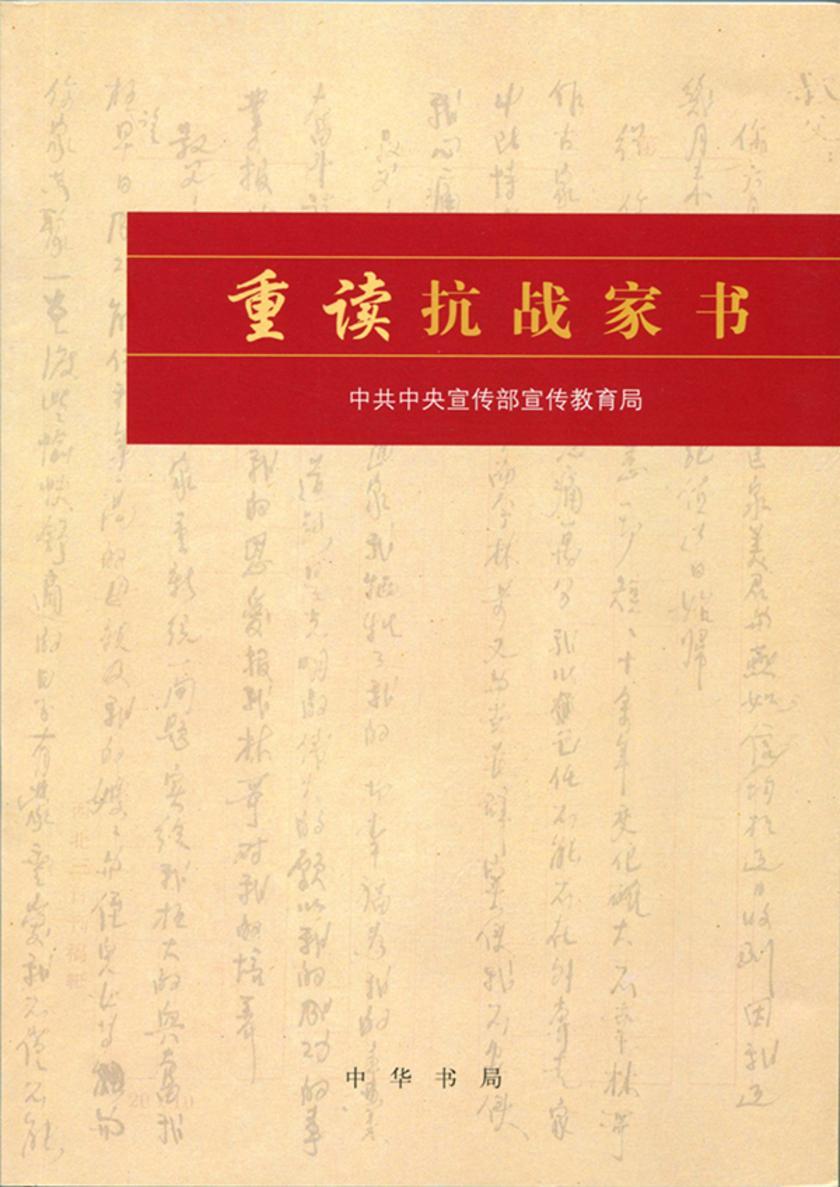
重读抗战家书(抄写) 中华书局出品
¥230.34
本书由中宣部宣教局组织,将收入在中华书局版的《重读抗战家书》中的原件,约请中国书协的名家以小楷重新抄写。图书的基本内容同原书,但只保留书法版和原文的释文。其主要目的是更好的保存英烈家书,并将抗战精神发扬光大。该书出版后将由中宣部赠送至中国人名抗日战争纪念馆、军事博物馆、国家博物馆等。 原书主要内容是: 为巩固和扩大中国人民抗日战争暨世界反法西斯战争胜利70周年纪念活动的成果,大力弘扬伟大的民族精神和抗战精神,我们选取抗战英烈家书,编辑了《重读抗战家书》。这些抗战家书,展现了革命英烈坚定的理想信念和深厚的家国情怀,感人至深、发人深省,是进行理想信念教育*生动、*有说服力的教材。

Spark大数据商业实战三部曲:内核解密|商业案例|性能调优(第2版)
¥230.30
本书基于 Spark 2.4.X版本,以 Spark商业案例实战和 Spark在生产环境下几乎所有类型的性能调优为核心,以 Spark内核解密为基石,对企业生产环境下的 Spark商业案例与性能调优抽丝剥茧地行剖析。全书共分 4篇,内核解密篇基于 Spark源码,从一个实战案例手,循序渐地全面解析 Spark 2.4.X版本的新特性及 Spark内核源码;商业案例篇选取 Spark发中*代表性的经典学习案例,在案例中综合介绍 Spark的大数据技术;性能调优篇覆盖 Spark在生产环境下的所有调优技术;Spark AI解密篇讲解深度学习实践、 Spark PyTorch案例实战、Spark TensorFlow实战以及 Spark上的深度学习内核解密。 本书适合所有 Spark学习者和从业人员使用。对于有分布式计算框架应用经验的人员,本书也可作为 Spark高手修炼的参考用书。本书还适合作为高等院校的大数据课程教材。
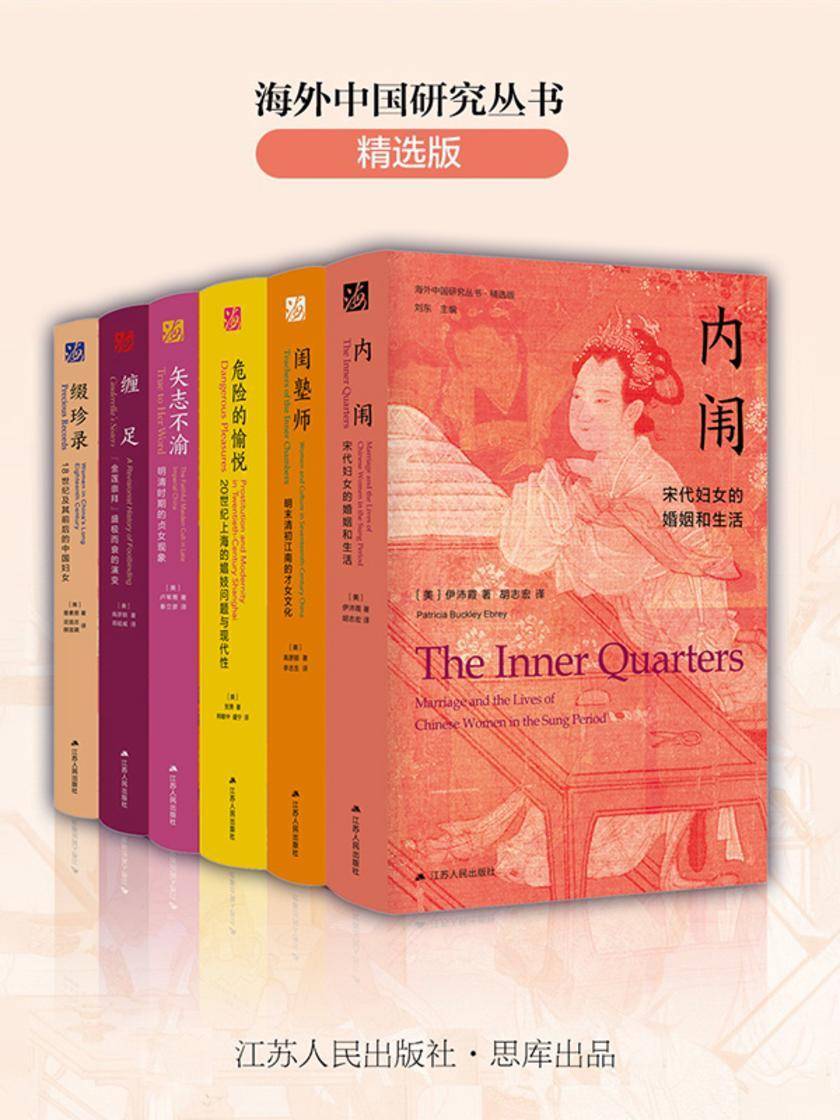
海外中国研究丛书合集——女性系列(六卷本)
¥230.00
【内容简介】 《内闱》考察的宋朝是一个纷繁复杂、充满变化的时代。一方面,缠足开始流行,士人开始倡导“饿死事小,失节事大”;另一方面商业有了前所未有的发展,女性的婚姻和财产权得到进一步保障。在这本海外中国妇女史研究的开山之作里,作者向我们展示了一幅内容异常丰富的画卷,宋代女性的生活图景栩栩如生地呈现在我们面前:内外之别,祭祀庆典,安排婚嫁,侍奉公婆,养育后代,内闱争宠,守节再嫁……从而显示妇女史是动态的历史,是富有多种可能性的历史。由此读者不仅能够从多角度、多层面了解宋代女性群像,还能在历史转折时期的社会变迁中把握她们的选择和才智。 《闺塾师:明末清初江南的才女文化》 明末清初巨大的社会经济和文化变迁,促进了“才女文化”的繁荣。其中突出的是坊刻的兴起、读者大众群的出现、对情感的重新关注、女性教育的提倡、女性出游机会的增多及女子特性的重新定义等。本书的要旨是改写五四史观对传统妇女史的论述。本书认为,明末清初的江南闺秀远不是受压和无声的,她们在男性支配的儒家体系中创造了一种丰富多彩和颇具意义的文化生存方式。作者通过儒家理想化理论、生活实践和女性视角的交叉互动,重构了这些妇女的社交、情感和智力世界。透过妇女生活,本书提出了一种考察历史的新方法,这种方法是以具体了解妇女是如何生活为前提的。 《危险的愉悦:20世纪上海的娼妓问题与现代性》 《危险的愉悦》是一部上海娼妓业史话,但它是产生于后结构主义时代的史学著作,得益于20世纪后半叶丰富的理论探索、思想对话与多重视角,作者尤其受到马克思主义、女性主义与社会性别研究、后结构主义、后殖民研究中“下属群体”概念等的影响,将“史料”和自己所生产的“历史”都看作是无比生动的、复杂的、开放的“过程”中的对话、商谈、记忆、建构、创造活动。《危险的愉悦》分五大部分,共15章,论述从晚清到20世纪90年代初100年间,“娼妓”问题在各个层面上如何扭结了民族意识、政治权力关系、商业和经济利益、强国方针、社会改革、民族心理、欲望和恐惧、社会性别构造等等的丰富的语义场,成为相当核心的中国政治、经济、历史和精神文化的象征符号。 《危险的愉悦》获得美国历史学会琼·凯利妇女史著作纪念奖,这是历史学会首次将此奖项授予写美国以外地区妇女历史的作者。 《矢志不渝:明清时期的贞女现象》 明清时期,数以千计的年轻女子抗拒父母的权威,终生忠贞于她们的未婚夫,很多以寡妇的身份终其一生,有的为未婚夫自杀殉死。贞女现象引发了中国历史上关于礼与女德的*激烈、*持久的意识形态争论。本书旨在对贞女现象作一历史描述,并探讨赋予其意义的、反过来又被它所影响的明清社会和文化。通过勾勒贞女现象之形成、发展轨迹以及国家和社会对它的反应,本书试图对贞女现象与帝国晚期的政治、文化、思想变迁的关系达成较*的了解,并通过判析围绕着贞女现象的矛盾冲突,揭示年轻女子与其家庭和社会之间的关系。本书*根本的目的在于探索贞女的情感、理想和生活历程,并由此解释是什么影响了这一时期年轻女性的性别身份,以及她们如何看待和表达尊严、责任、爱情。 《缠足:“金莲崇拜”盛极而衰的演变》 作者跨越了国族主义、女性主义和东方主义的框架,明确地将缠足摆置在时尚史的范畴之中。透过巧妙的叙事策略——先从缠足在现代的消逝过程说起——她将前现代全盛时期的缠足史,设定为一部有关遮蔽的故事,埋藏其中的,是隐密化的源头、隐密化的身体,以及隐密化的意义。层层遮蔽的缠足,有如一道道幻影,当它被呈现为欲望客体的同时,其实也不经意地透露出妇女们的我群认同。 【内容简介】 有关中国妇女史的研究,在中国境外各地让刚刚起步,山中国女性的作品汇聚而成的宝库也还在等待着各国学者的开掘。本书仅仅粗浅地叙述了在一段短暂的历史时期中,这些女性的感受、信仰,以及实际所做的一切。作者利用的*重要的史料均来自于女性作家的作品,主要是诗作。作者也使用了一些习见的、出自男性之手的史料:纪传碑铭、地方史志和官方文献。这些涉及到妇女及社会性别关系的文字既出现在男性的经世致用文章——官员们为管理地方事务拟就的一些有关政策的建议——之中,也见于男性以礼仪、艺术和文学为对象撰成的学术文章之中。将这些习见的、由男性书写的史料与妇女自身的作品相参照,便推开了一扇通向中国女性世界的崭新的窗口。 在这些形形色色的史料中,以传记表文为*丰富。有关中国女性的传记,已经被刊刻的就不下数千种。我们可以在地方志中、在学者刊刻的文集中所收录的碑传铭殊、或是短篇打述中发现它们——文集的作者总会写到他热爱和钦佩的女性。在这些作品中备受推崇的女性大多数是作者本人的或者亲朋好友的祖母、母亲、诸姨姑婶和继母,还包括那些在西方或可以称之为圣徒的有德之人(女道土或女尼),还有一些以勇敢著称的女英雄(为父申冤、虎口救母等等)。到了帝国晚期,亦即…以宽泛地定义为明(1368—1644年)清(1644—1911年)两朝的这个时期,所谓的列女传,事实上记述的已经全都是(因力拒强暴而死或自杀以拒辱的)烈女或拒不再婚守节终生的寡妇的事迹。

GB50713-2011板带精整工艺设计规范(英文版)
¥230.00
本书是国家标准《板带精整工艺设计规范》GB50713-2011的英文版。本规范根据中华人民共和国住房和城乡建设部第1081号公告制定,自2012年6月1日起实施。本规范适用于新建、改建和扩建中厚板、热轧宽带钢和冷轧宽带钢的精整工艺设计。本规范共分6章,主要内容包括总则、术语、基本规定、中厚板精整、热轧宽带钢精整、冷轧宽带钢精整。


中国古典文学名著宝库(共23册)
¥229.99
中国传统文化浩如烟海,博大精深。一部部志怪、神魔、世情、讲史的章回体小说在宋、元讲史话本的基础上,相继脱颖而出,宛若一颗颗璀璨的明珠,在历史的长河中熠熠生辉,传承后世,昭示世人。中国古典语文学至宋、元以后发展势头异常迅猛。特别值得一提的是《三国演义》首次将历史与艺术相接合,开创了历史演义小说的先河,成为中国古典文学宝库中*部完整的长篇历史章回小说,为以后的"水浒传"、"红楼梦"等一批具有高艺术价值的作品的问世,奠定了坚实的基础。本套丛书囊括了古典小说中的精髓,甄选了历代版本之精华。是一套值得收藏的精品。

黎东方讲史(全套共九册)
¥229.99
本书以讲史形式阐述了自秦朝统一六国至晋朝建立之间的历史,涉及的重要人物有秦始皇、李斯、刘邦、项羽、汉武帝等;重要事件有焚书坑儒、指鹿为马、垓下之战、吴楚七国之乱等。“细说体”为黎东方独创的讲史形式。以通俗生动的文笔叙述严肃的历史故事,让读者以看《三国演义》的轻松心情,获得的却是胜于《三国志》的历史知识,已出五种“细说”已受到读者欢迎。如今已一次将从秦汉至民国的中国历史全部补齐,九册整套推出,估计影响会更大。

哲学是很好玩儿的(套装共15册)
¥229.99
《哲学是很好玩儿的》(套装共15册)包括生命哲学、心灵哲学等多种哲学思想结晶,读者可以从入门开始,通过通俗易懂的方式学会如何用哲学思维思考,感受哲学里的自我和世界,帮读者重新审视自我和我们栖居的世界,以及和这个世界的关系,捕捉心中迸发的迷惑与感悟,进而把它们锤炼为人生的智慧。

北欧悬疑小说天王:尤·奈斯博作品集(全12册)
¥229.99
本套书是北欧悬疑小说天王尤·奈斯博全警探悬疑小说。分别为《猎头游戏》《蝙蝠》《蟑螂》《知更鸟》《复仇者》《五星芒》《救赎者》《雪人》《猎豹:全二册》《幽灵》《警察》《焦渴》共12册 《猎头游戏》:一桩尔虞我诈的骗局×两个各怀心机的猎人×一场变调的猎头游戏:情节环环相扣,节奏紧张刺激,恶搞名场面频出,荒诞又好笑。 《蝙蝠》:多名金发女子惨遭性侵继而被勒死,当所有的线索指向马戏团小丑,抓捕在即,小丑却被残忍杀害! 《蟑螂》:挪威驻泰国大史被发现死在妓院旅馆,硬汉警探哈利再赴异国,勇闯曼谷红灯区寻找线索,却发现他被派来根本只是个烟雾弹,没人希望他找到真相。 奥斯陆三部曲之《知更鸟》:一把目的不明、威力巨大的狙击步枪,悄悄流入挪威,指向一桩尚未被人发觉、暗中酝酿的罪案。 奥斯陆三部曲之《复仇者》:一桩无迹可寻的银行劫案,一首爱恨交缠的生命恋曲。哈利前女友突然死亡,他沦为了命案的头号嫌疑人...... 奥斯陆三部曲之《五星芒》:接连发生的女子遇害或失踪案,撕裂了奥斯陆悠闲的宁静夏日。这是一个魔鬼设下的死亡游戏,一切都和数字“5”有关。 《救赎者》:奈斯博登峰之作《雪人》前传。这是后一项任务,这项任务只需要一发子弹。 《雪人》:这一年,哈利即将步入40大关,他的爱人也被卷入危险之中..... 《猎豹:全二册》:一件被称为苹果的骇人凶器,一个藏身暗处的疯狂猎手。 《幽灵》:也许生命只教会你一件事,那就是时光无法倒流。 《警察》:人生中有些事,终究无可逃避,因为完成它们就是你存在的意义! 《焦渴》:他的焦渴就像火,如果不浇熄,就会吞没一切。
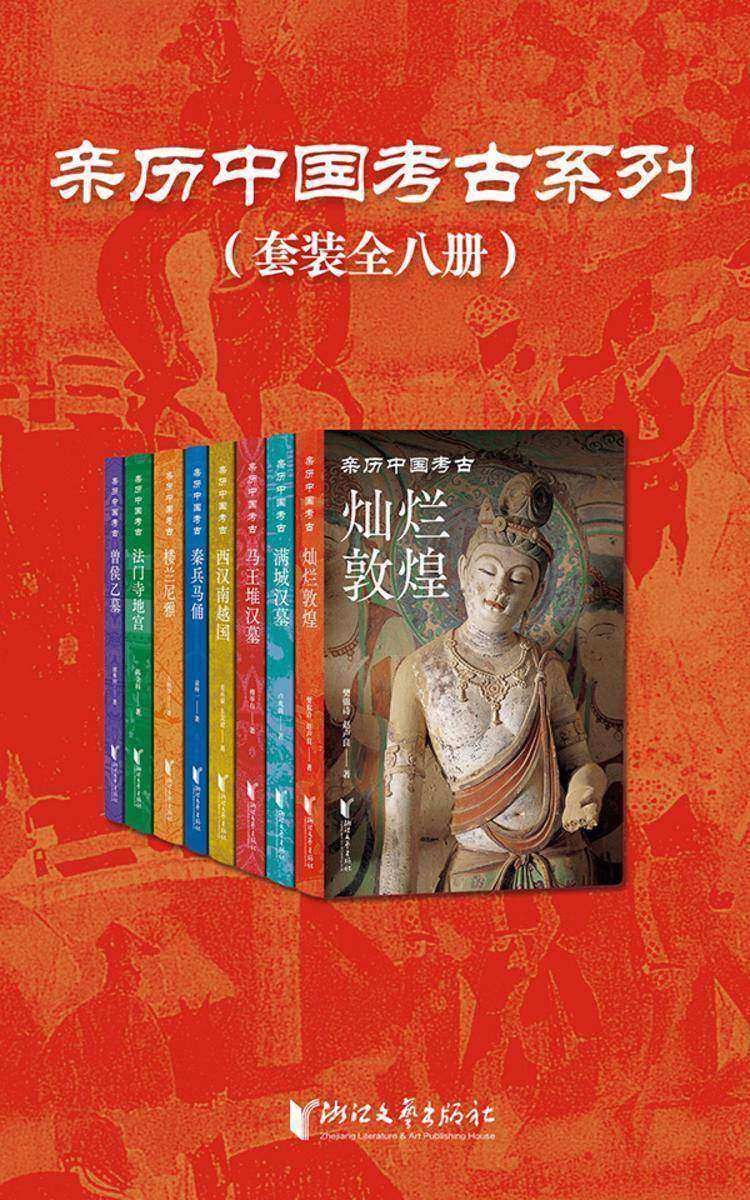
亲历中国考古系列(套装全八册)
¥229.99
此套系含《灿烂敦煌》《曾侯乙墓》《法门寺地宫》《楼兰尼雅》《西汉南越国》《满城汉墓》《马王堆汉墓》《秦兵马俑》8本,10位考古专家百万字深入解读八大文化遗存。

曾国藩的正面与侧面:全四册
¥229.99
这既是一部曾国藩的个人生活史,也是一部晚清政治史、社会史。通过这本书,不仅能了解一个更*的曾国藩,也能了解中国传统社会政治的运转规律。 套装全4册,围绕晚清名臣曾国藩的人生际遇与处世方法展开,*部讲述曾国藩的为官之路和立身准则,由此探讨曾国藩作为一个典型的封建官员的内心世界和事业成败;第二部主要讲述曾国藩的家风和治家之道,通过分析他与父母、兄弟、子女的相处方式,展现晚清时期典型官绅家庭中的伦理关系;第三部主要讲述曾国藩与同僚、下属之间相互合作又有所冲突的关系,深入分析晚清官场中的人际交往模式和种种离合暗流,更加立体地再现了曾国藩所处的时代环境与社会环境。 第四部通过观察他的经济生活,可窥探这个传统社会*后一个圣人少为人知的一个侧面,他的“真诚”与“虚伪”,在金钱诱惑面前采取的既原则分明又现实圆通的态度,呈现了晚清官场种种微妙而复杂的“规矩”。

中国散文诗一百年大系(全八册)
¥229.99
《中国散文诗一百年大系》(全八册)为套装,八个分册。该书把近一百年来散文诗的精华作品汇编在一起,既有对乡村田野风光的赞美,也有对人间美好情感的颂扬。套书整体上创意新颖,文章精美。是一部了解、学习、借鉴、研究中国近一百年来散文诗兴起、发展概况的比较好的文集。
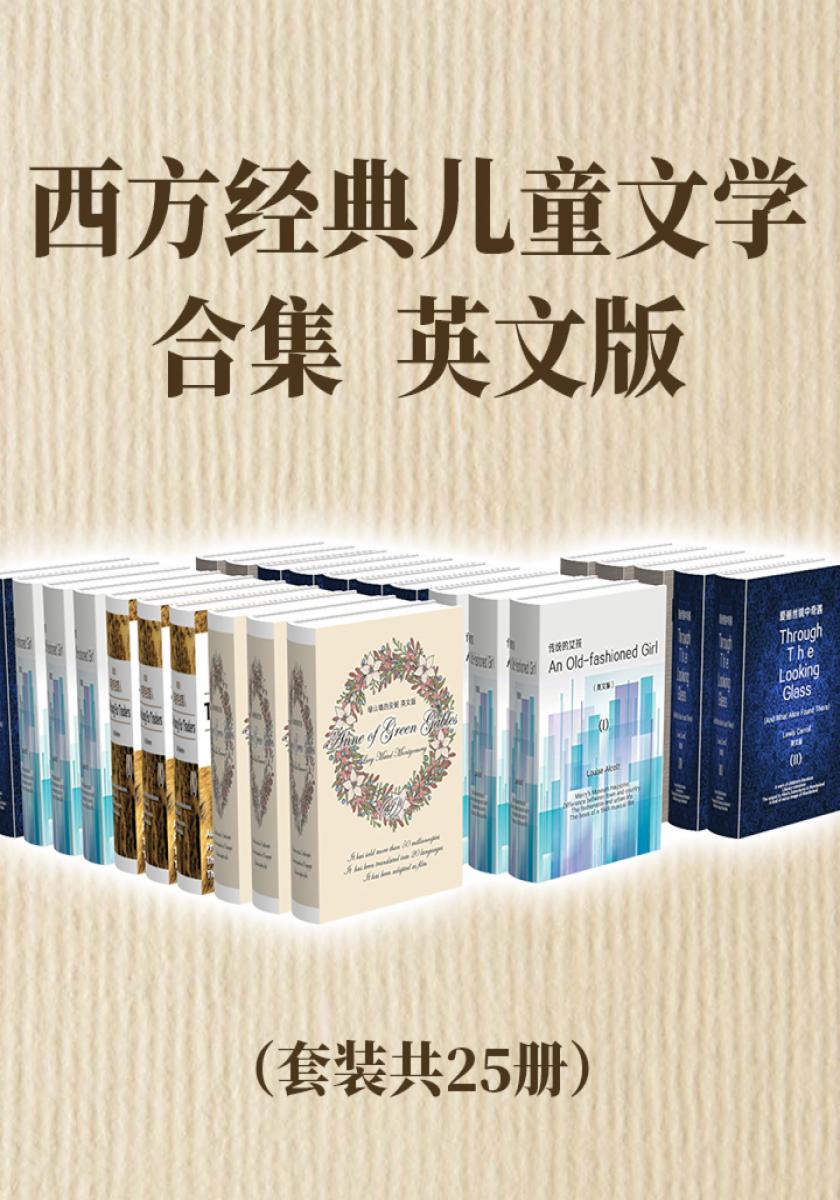
西方经典儿童文学合集(英文版套装共25册)
¥229.99
本套书精选欧美国家流传多年的经典儿童文学作品,均为英文版,既能培养孩子的阅读兴趣,又能提高其英语水平。如《一个男孩子在巴西丛林的历险》,是英国儿童文学作家罗伯特·迈克尔·巴兰坦的代表作,又叫《马丁·拉勒》。本书写了一个男孩子在巴西丛林的历险经历,故事生动逼真,妙趣横生。塑造了机智勇敢的男孩子形象,赢得了众多读者的喜爱,此后作品被广泛流传。作品向读者提供了非同寻常的生活方式,给人以新鲜感,真实活泼的气氛也加强了作品的可读性。《绿山墙的安妮》被誉为“世界上甜蜜的少女成长故事”。作品讲述了纯真善良、热爱生活的女主人公小安妮,了自幼失去父母,11岁时被绿山墙的马修和玛丽拉兄妹领养,但她个性鲜明,富于幻想,而且自尊自强,凭借自己的刻苦勤奋,不但得到领养人的喜爱,也赢得老师和同学的关心和友谊。 成长与梦想是全书的主题,作者以安妮的故事告诉人们:只要胸怀梦想,不懈努力,生活就会丰富多彩,生命就会美丽多姿。马克·吐温评价说:“安妮是继不朽的爱丽丝之后令人感动和喜爱的形象。”

东宫
¥229.90
【古言双强+宫斗宅斗+甜宠爽文】骄纵将门贵女x心机腹黑皇子,东宫夫妇携手虐渣,又苏又爽! 她是大将军之女,骄纵矜贵,可随意进出建章宫,从小的愿望就是当公主,养面首。 他是从小被送入敌国的质子,被大将军接回国后,处境尴尬,却声望渐起。 本是井水不犯河水的两人,但一次醉酒误事,她当众亲了他…… “一时冲动,真的是一时冲动。” “不,该是蓄谋已久。姑娘毁了在下声名,要负责任的。” …… 她本不愿嫁入皇家,介入皇权争斗,可心却不受控制走向了他。 那就随心而为,与他携手入主东宫! 翻开本书,看东宫夫妇携手虐渣,又苏又爽!

有种后宫叫德妃(全七册)
¥229.60
宫斗文坛一直在翘首期盼的高格局划时代之作—— 高智商高情商宫斗:有种后宫叫德妃 ★传奇:出身包衣,却统领后宫,泽被三朝 她出生满族包衣,却逆袭成为千古一帝康熙宠爱的妃子;她是九龙夺嫡胜者雍正之母,她堪比孝庄慈禧,传奇一生泽被康乾盛世;她以无上大智慧高情商,征服帝王,领袖后宫,缔造史上独一无二的“德妃后宫”。 ★宫斗:不用你死我活也能当皇太后 你以为的宫斗都是如媚娘甄嬛一路打怪升级撕名牌?高段位的宫斗是不用杀光敌人牺牲朋友埋葬爱情也能升级BOSS!颜值不高却凭忠心护主赢得君心,出身低微却因懂事贴心获孝庄太后言传身教,盛宠不倦却能恪守方寸化解后宫争斗。她是妃子,温良纯正无欲无求让君心长留;她是额娘,大智慧高情商助子成王。 ★大咖:清朝大咖联袂出演 在这里,几乎能看见你所熟知的活跃清朝舞台的大咖们: 和韦小宝智擒鳌拜平定三藩、带着宜妃微服私访的小玄子康熙 教晴川弹琴、和怜儿跳舞、带若曦去哭、与甄嬛纠缠的四爷雍正 与多尔衮爱恨情仇、帮康熙开创盛世的大玉儿孝庄 与纪晓岚、刘锣锅比口才、同小燕子晒父爱的弘历乾隆 人生若只如初见的旷世才子纳兰性德 为晴川疯狂、对若曦痴情的八爷胤禩 四爷*神秘善良的纯元、霸气外漏的融芳华妃、陪康熙微服私访心直口快的宜妃等等 ★六味暖心:甜腻·纯爱·唯美·虐恋·温情·壁咚 1.“健健康康的才好,朕要乌雅岚琪陪着朕一辈子,答应朕。” 2.下辈子咱们不要生在帝王家,朕就和你一生一世一双人。 3.“倘若皇上没走远,瞧见我怎么办,又或我忍不住去看他,我怕看到他……我怕看到他,夜里忍不住想哭” 4. 玄烨的心一点一点沉下来,他怎能奢望岚琪永远是那个,为了留住自己而不惜掀开被子露出身体的小宫女?既然想要她永远留在身边,好好地留在身边,她就必须融入这个世界,沾染后宫的气息,成为一个后宫女人,而自己并非厌恶,只是舍不得,只是心疼。 5.“乌雅岚琪,你胆子可不小,朕这辈子还没尝过背黑锅的滋味!” “您连江山都担得,背一次黑锅算什么。” 她是无欲无求的小宫女,他是霸气倔强的新帝,年龄相仿,心思相同,两个人在美的年华遇到彼此。 他,只许自己欺负她,彻夜教她读书识字,偷偷望着她的背影,为她的笨拙和善良默默心疼。 她,守护他胜过自己的生命和尊严,思念他至夜夜以泪洗面,爱他胜过自己至亲骨肉。 她用一生换他一世,他用一世周全她一生

宫颈癌筛查及临床处理:细胞学、组织学和阴道镜学
¥229.60
本书反映了宫颈癌筛查的*研究展,结合国内妇科临床病理工作的实际需要,以细胞病理专业为基础,由多学科专家从多视角共同完成。以宫颈癌筛查为主线,以细胞病理学为核心,详细地阐述了在宫颈癌筛查中涉及的各方面内容,包括细胞学的诊断标准、质量评估、各种异常细胞学的形态变化特,以及妊娠期的子宫颈细胞学表现和特殊部位肛管的细胞学。本书紧密联系临床,以实际案例剖析如何避免诊断陷阱、正确解决签发病理报告时遇到的问题及相关临床处理共识和指南,适用于病理学医生、妇科医生、流行病工作者、病理学专业的医学生、住院医生和修医生的学习培训。
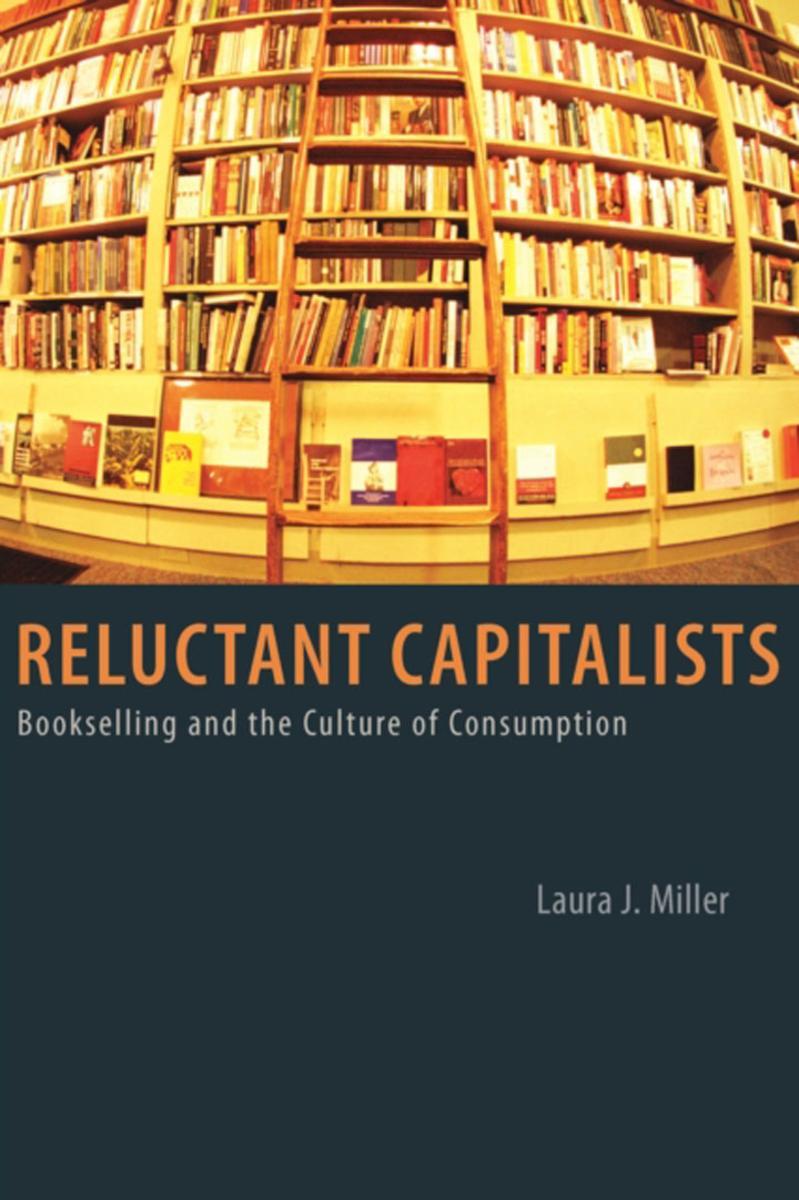
Reluctant Capitalists: Bookselling and the Culture of Consumption
¥229.55
Over the past half-century, bookselling, like many retail industries, has evolved from an arena dominated by independent bookstores to one in which chain stores have significant market share. And as in other areas of retail, this transformation has often been a less-than-smooth process. This has been especially pronounced in bookselling, argues Laura J. Miller, because more than most other consumer goods, books are the focus of passionate debate. What drives that debateAnd why do so many people believe that bookselling should be immune to questions of profit?In Reluctant Capitalists, Miller looks at a century of book retailing, demonstrating that the independent/chain dynamic is not entirely new. It began one hundred years ago when department stores began selling books, continued through the 1960s with the emergence of national chain stores, and exploded with the formation of "e;superstores"e; in the 1990s. The advent of the Internet has further spurred tremendous changes in how booksellers approach their business. All of these changes have met resistance from book professionals and readers who believe that the book business should somehow be "e;above"e; market forces and instead embrace more noble priorities.Miller uses interviews with bookstore customers and members of the book industry to explain why books evoke such distinct and heated reactions. She reveals why customers have such fierce loyalty to certain bookstores and why they identify so strongly with different types of books. In the process, she also teases out the meanings of retailing and consumption in American culture at large, underscoring her point that any type of consumer behavior is inevitably political, with consequences for communities as well as commercial institutions.

林语堂品读东西文化(六种七册,包括生活的艺术、吾国与吾民、老子的智慧、孔子的智慧、美国的智慧、印度的智慧、中国的智慧)--在全球视野下对中国精神的不懈探求,对东(试读本)
免费
本套书收录了林语堂有关文化方面的所有著作,其中《生活的艺术》和《吾国与吾民》是林语堂的成名作,也是代表作,完美地呈现了中国的思想、文化以及中国人的优雅情怀与人生哲学。而智慧系列则全面而深刻地体现了林语堂观照东西文化的广阔视野与独特感悟,具有很好的总结性和对现实生活积极的指导意义。这套书具体包括《生活的艺术》《吾国与吾民》《老子的智慧》《美国的智慧》《孔子的智慧》《印度的智慧》《中国的智慧》




 购物车
购物车 个人中心
个人中心



